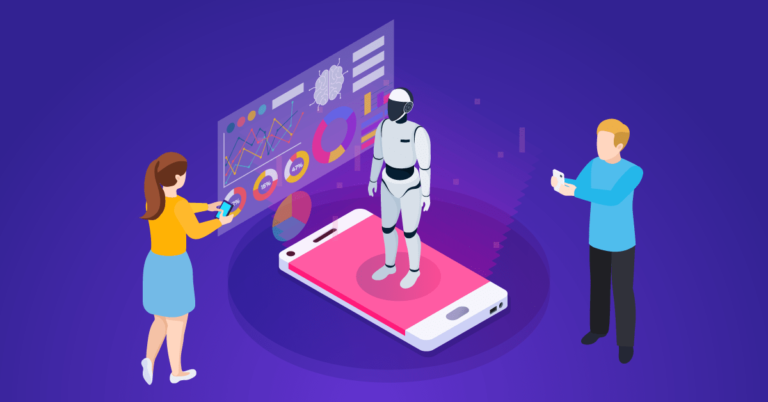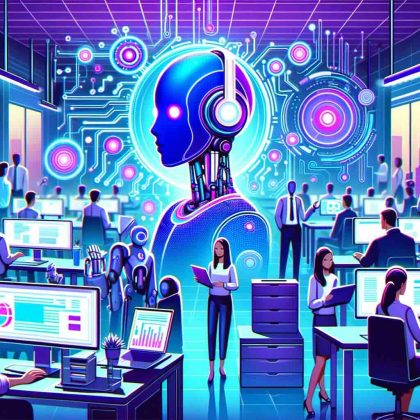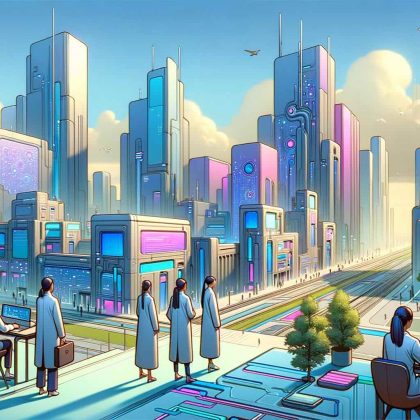The 21st Century’s AI Biggest Achievements

Artificial Intelligence (AI) dates back to antiquity when philosophers concocted fables, myths, and rumors about how artificial entities may be endowed with human intelligence or consciousness. Since then, it has progressed from being purely fictional to a real world with loads of Artificial Intelligence accomplishments.
AI has been at the forefront of technological advancements in recent decades. Medical diagnosis, education, stock trading, robot control, law, scientific discovery, video games, and toys are just a few of the sectors where it’s been used.
Also, the advances of AI in the 21st century have indeed been extraordinary. Some of the Artificial Intelligence achievements include face recognition, Natural Language Processing, speech recognition, text production, language translation, drug development, and more.
It’s also revolutionized the way many people think about health, living, learning, and other aspects of their daily lives. There is no doubt that in the future, many businesses will rely on AI to improve efficiency and workflow.
In this article, we discussed some Artificial Intelligence achievements, several interesting AI projects, and the future of AI.
What is Artificial Intelligence and how does it work?
In 1956, a young computer scientist named John McCarthy organized a summer conference titled “Artificial Intelligence” at Dartmouth University. A group of scientists from several professions had begun to discuss the potential of developing an artificial brain before that particular time. The discipline of AI study arose as a result of these events. Since then, governments and corporations have poured millions of dollars into AI research.
However, it was in the first decades of the 21st century that AI was successfully applied to a wide range of problems in academia and industries. All thanks to innovative approaches, the use of powerful computer hardware, and the accumulation of massive data.
Artificial intelligence (AI) is a computer science field that has developed over time. It entails machines, particularly computer systems, simulating human intellectual processes. The term, AI, is widely used to refer to a project aimed at developing systems that can execute tasks that would typically need human intelligence, including decision-making, visual perception, language recognition, and speech recognition.
In general, AI systems operate by ingesting and analyzing huge volumes of trained and labeled data for correlations and patterns and then using the patterns to forecast future events. For example, an image recognition tool can learn to identify and characterize items in photos by examining millions of samples. Also a chatbot can learn to make lifelike dialogues with people when being fed examples of text chats.
Data and algorithms as to how to convert the data into usable information are fed into AI programs. And the algorithm aids the software in selecting the appropriate data for the appropriate result. Moreover, AI algorithms are programmed to be able to learn from new data as well as to fine-tune data on a regular basis to deliver the most accurate results possible.
What are the Artificial Intelligence achievements so far?
The twenty-first century is an ever-changing era where AI technology is advancing at a fast pace. Scientists worked harder than ever before, and many new and exciting discoveries were made.
What are some of the most intelligent AI achievements to date?
- GPT-3 – The Language of AI
OpenAI’s Generative Pre-trained Transformer-3 (GPT-3) is the successor to the former GPT-2. Although GTP-3 is still in the beta stage, it has already been nicknamed the AI language.
It’s a powerful AI model for Natural Language Autoregression. It has the potential to build human-like language models, making it the most remarkable AI model in NLP.
Furthermore, this model can use Deep Learning to autofill sentences when given the beginning of a sentence. The presented model includes 175 billion parameters that are tuned using neural networks, and each training set can be identified as a parameter. You must be familiar with Google search autofill.
GPT-3 can also generate HTML code, guitar nodes, and webpages in addition to being a language generating model.
- Healthcare and Drug Discovery AI
Healthcare AI developments are one of the most beneficial uses of AI to humanity because they allow for quick treatment solutions and diagnosis. The development of prospective pharmaceuticals could take up to ten years and cost billions of dollars before it can be approved for treatments. However, AI is capable of doing the same in less time and for less money. Some Artificial Intelligence achievements in healthcare include:
- DeepMind’s Alpha Gold – Highest Accuracy Drug Protein Folding AI.
The most important aspect of medicine development and understanding how it works depends on knowing the protein structure. AlphaFold was created by DeepMind with the goal of fully comprehending protein structure.
AlphaFold scored 87 out of 100 in a Critical Assessment of Structure Prediction (CASP) competition, with the second-place finisher scoring 75. In the field of computational biology, this was a significant achievement. If the research continues to be successful, it will aid in the development of new vaccines and medicines with the fewest possible negative effects.
- CurialAI – First AI algorithm to detect potential COVID-19 infected patients.
CurialAI is an AI algorithm developed by the Oxford University. It is based on tests carried out in hospital emergencies using blood samples and other vital samples.
The AI training began in March 2020, and 115,000 data sets have already been fed to the program thus far. CurialAI was able to distinguish between COVID-infected patients and patients with other respiratory defects with greater than 90% accuracy in less than an hour after being trained.
- Self-driving cars (driverless car or autonomous car)
Self-driving cars travel between locations without the assistance of a human driver using a combination of sensors, cameras, radar, and AI.
- Google Waymo Self-Driving Cars
Waymo LLC is a self-driving car firm that is owned by Alphabet Inc. It is the first company to deliver self-driving automobiles to the general public. These Waymo self-driving cars are currently accessible in a few US cities.
Sensors, lidars, and 360 surveillance radars that can identify an item 300 meters away were the main detection components used in these cars. However, Waymo developers had created CarCraft, a virtual driving program that is intended to test driving patterns prior to the public launch. Before taking to the road, Waymo logged 5 billion miles in a CarCraft virtual world.
However, only a few accidents were reported during the driving test, and the majority of these were caused by other drivers or other vehicles. Only one case of choice gone wrong has been reported, in which Waymo collided with a bus.
- Tesla Autopilot
Tesla Autopilot is a collection of advanced driver-assistance system (ADAS) technologies provided by Tesla. And it is equivalent to Level 2 vehicle automation. That is the driver is in charge, and the vehicle must be constantly monitored. The features, according to the company, are said to minimize accidents due to human error and exhaustion from long-distance driving.
Lane centering, automatic lane changes, traffic-aware cruise control, semi-autonomous navigation on limited-access highways, self-parking, and the option to summon the car from a garage or parking spot are some of its features.
- Virtual assistance, security, and surveillance technologies
AI has helped transform the virtual assistance industry as well as security and surveillance in the following ways.
- Speech Recognition
Speech recognition is the process of a computer interpreting human’s words and turning them into a machine-readable format. It is subsequently transformed to text, audio, or another required format, based on the end-goal and what it is to be achieved. Voice recognition AI includes Google Assistance, Siri, Microsoft Cortana, Alexa, and a slew of other virtual assistants.
In addition, many businesses are increasingly adopting digital assistants and automated support to streamline their services. And it has resulted in a large increase in the number of speech recognition AI apps in recent years.
Speech recognition is widely used in voice assistants, smart home devices, IoT, search engines, and other applications.
- Face Recognition
Face recognition AI is also one of the 21st century’s most sophisticated AI achievements. Most smartphones today employ face recognition technology. Apple’s FaceID, Google’s Image Search, and Facebook’s object detection are some examples of how facial recognition AI is used today.
The Future of AI
Using data-trained models, Artificial Intelligence has had an impact in practically every field. However, some industries are just getting started using AI, while others are seasoned veterans. Regardless, AI has a lot of work ahead in virtually every industry.
Regardless of its current influence, AI is said to continue to shape our world over the next many decades.
- Transportation
Although significant breakthroughs in transportation have already been made, including Google Waymo and Tesla Autopilot. There are definitely many more AI advancements still to come in the transportation industry.
Many individuals, however, believe that self-driving cars will be the mode of transportation of the future in every town. It may take a long time, but with AI, everything is conceivable. In addition, AI will have a significant impact on automotive manufacturing in the near future.
- Healthcare
The creation of a drug can take several years. However, the introduction of current AI in healthcare such as DeepMind’s Alpha Gold will pave the way for the creation of many more AI-powered drug research and general improvement in healthcare.
- Cybersecurity
Many companies are turning to AI technologies for help in this area due to the increase in cyber-attacks. When it comes to identifying and predicting cybersecurity threats, Artificial Intelligence and Machine Learning will be essential tools to use. Fintech security will also benefit from AI, which can process large amounts of data to predict and detect fraud.
- Customer Service
Many companies are working on Artificial Intelligence assistants (like Google Duplex) that can make human-like phone calls for customer service and schedule appointments.
Conclusion
Since it was first talked about in the late ‘50s, Artificial Intelligence has seen mind-shattering improvements. Now, it is driving our most intimate life changes. It is safe to say that machines now know us more than we know ourselves and all that is made possible through interesting AI projects.
However, you don’t have to feel left out. You can join the SDS Club to learn about Data Science, AI, and how to deal with the enormous amount of available data and be a part of the future that scientists are building.
Did you enjoy this article?
Take a moment to share it with your friends on social media. Also, subscribe to our newsletter for up-to-date information about Artificial Intelligence and the big Data Universe.



